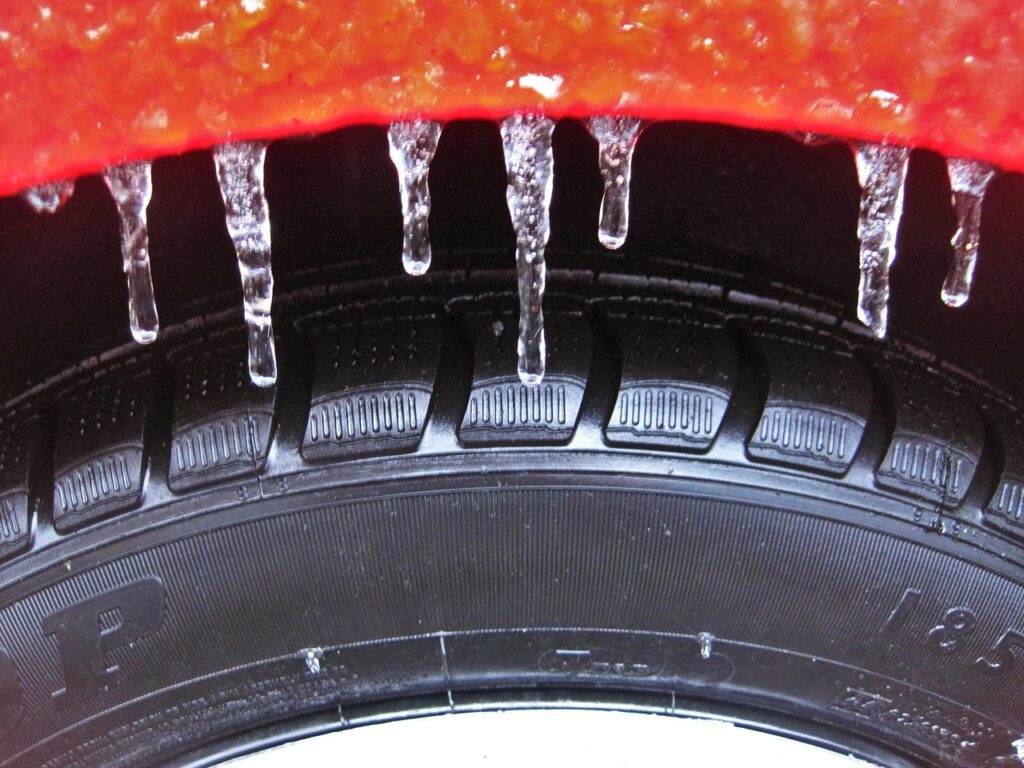Winter tires are a necessity for many drivers who have to navigate icy and snowy roads during the colder months. But did you know that these specialized tires may also have a surprising impact on fuel efficiency? It’s true! In this article, we will explore whether winter tires can actually help improve your fuel economy, providing you with valuable insights to make informed decisions when it comes to your winter driving experience. So, get ready to discover the potential link between winter tires and fuel efficiency!

Importance of Winter Tires for Fuel Efficiency
Tire Composition and Tread Design
When it comes to fuel efficiency, the composition and tread design of winter tires play a crucial role. These specialized tires are designed to provide optimal performance in cold weather conditions, with a focus on improved traction and grip on icy or snowy roads. Winter tires are typically made from a rubber compound that remains flexible even in freezing temperatures. This flexibility allows the tires to maintain better contact with the road surface, reducing slippage and improving fuel efficiency.
Tire Pressure and Rolling Resistance
Proper tire pressure is essential for maximizing fuel efficiency, regardless of the season. However, it becomes even more critical during the winter months. Cold temperatures cause a decrease in tire pressure, which can lead to increased rolling resistance. This increased resistance requires more power from the engine to keep the vehicle moving, resulting in higher fuel consumption. By regularly checking and adjusting the tire pressure of your winter tires, you can minimize rolling resistance and improve fuel efficiency.
Reduced Slippage and Improved Traction
Winter tires are specifically designed to provide excellent traction on snow and ice-covered roads. This enhanced traction reduces slippage and helps maintain control of your vehicle, especially in adverse weather conditions. With improved traction, your vehicle’s engine doesn’t have to work as hard to move the car forward. Consequently, less power is consumed, and fuel efficiency is increased.
Factors Affecting Fuel Efficiency with Winter Tires
Cold Weather and Air Density
Cold weather affects the air density, and this, in turn, affects fuel efficiency. In colder temperatures, the air becomes denser, which means it contains more oxygen molecules per unit volume. An increased supply of oxygen-rich air allows the engine to burn fuel more efficiently, thus improving fuel economy. Winter tires help facilitate better performance in cold weather conditions, allowing the engine to work optimally and take advantage of the denser air.
Driving Habits and Route
Your driving habits and the route you take can also significantly impact fuel efficiency with winter tires. Aggressive driving, such as frequent acceleration and hard braking, consumes more fuel regardless of the type of tires. Similarly, choosing a route with significant traffic congestion or uphill climbs can lower fuel efficiency. By adopting smooth and steady driving habits, avoiding excessive idling, and selecting efficient routes, you can maximize fuel efficiency, even with winter tires.
Vehicle Type and Weight
The weight and type of vehicle you drive can influence fuel efficiency, regardless of the tires used. Larger and heavier vehicles generally consume more fuel since they require more power to accelerate and maintain speed. However, winter tires can help improve fuel efficiency in all types of vehicles. Whether you drive a compact car, SUV, or pickup truck, using winter tires designed for your vehicle’s weight and dimensions can optimize fuel efficiency during the winter months.

Fuel Efficiency Benefits of Winter Tires
Reduced Fuel Consumption
One of the key benefits of using winter tires is reduced fuel consumption. The improved traction and grip provided by these tires mean that your vehicle spends less energy overcoming slippage and maintaining control on snowy or icy roads. This reduced effort translates into lower fuel consumption, allowing you to travel more miles with each tank of gas.
Improved Handling and Stability
In addition to fuel efficiency, winter tires also offer enhanced handling and stability on winter roads. The unique tread patterns, designed to channel slush, water, and snow away from the tire’s contact patch, improve grip and reduce the risk of hydroplaning. With better control over your vehicle, you can navigate turns, stops, and acceleration more confidently. This improved handling translates into safer driving and increased fuel efficiency.
Longer Tire Lifespan
Another benefit of using winter tires is their potential to extend the lifespan of your tires. When you switch to winter tires during the colder months, you reduce wear and tear on your all-season or summer tires. Winter tires are specifically designed to withstand the harsh conditions of winter, including colder temperatures and icy roads. By using dedicated winter tires, you can preserve the tread life of your primary tires, ultimately saving you money on tire replacements in the long run.

Comparing Fuel Efficiency of Winter Tires
Testing and Standards
Fuel efficiency tests and standards are essential in comparing the performance of different tires, including winter tires. Various organizations and government agencies conduct standardized tests to measure the fuel efficiency of tires under controlled conditions. These tests consider factors such as rolling resistance, tread design, and road surface conditions. By referring to these tests and standards, you can gain valuable insights into the fuel efficiency of different winter tire models and make informed decisions.
Winter Tire Efficiency Labels
In many countries, including the European Union, winter tires are required to carry an efficiency label. These labels provide information on the tire’s fuel efficiency, wet grip, and external rolling noise. The fuel efficiency rating, represented by a letter grade (from A to G), offers a quick comparison between different tire models. Choosing winter tires with a higher fuel efficiency rating can help optimize your vehicle’s fuel consumption, leading to cost savings in the long term.
Real-world Fuel Efficiency Studies
While standardized tests and efficiency labels provide valuable information, it’s important to consider real-world fuel efficiency studies as well. These studies analyze the performance of winter tires in everyday driving conditions, taking into account factors such as temperature, road conditions, and driving habits. Real-world studies offer a more comprehensive picture of how winter tires contribute to fuel efficiency in practical scenarios, helping you make more accurate assessments before purchasing.

Other Considerations for Winter Driving
Regional Climate and Road Conditions
It’s important to consider the climate and road conditions specific to your region when choosing winter tires. Different regions experience varying levels of snowfall, ice, and cold temperatures. Tires that perform well in one region may not be suitable for another. Researching the specific requirements and recommendations for your region can help you select the most appropriate winter tires for optimal fuel efficiency and safety.
Driving Safety and Winter Tire Laws
Using winter tires not only improves fuel efficiency but also enhances driving safety during the winter months. Many countries and regions have laws in place that mandate the use of winter tires or require vehicles to be equipped with adequate traction devices during snowy or icy conditions. Complying with such laws ensures not only your safety but also the safety of other road users. By using winter tires, you can drive with confidence, knowing that you have taken the necessary steps to stay safe on winter roads.
Cost and Maintenance
While winter tires offer numerous benefits, it’s important to consider the cost and maintenance associated with them. Winter tires are an investment, and their cost can vary depending on the brand, size, and features. Additionally, storage and maintenance during the off-season may be required. However, when evaluating the cost, it’s essential to consider the potential savings in fuel consumption and the extended lifespan of both the winter tires and your primary tires. Ultimately, the cost of winter tires is a worthwhile investment in both your safety and fuel efficiency during the winter months.


